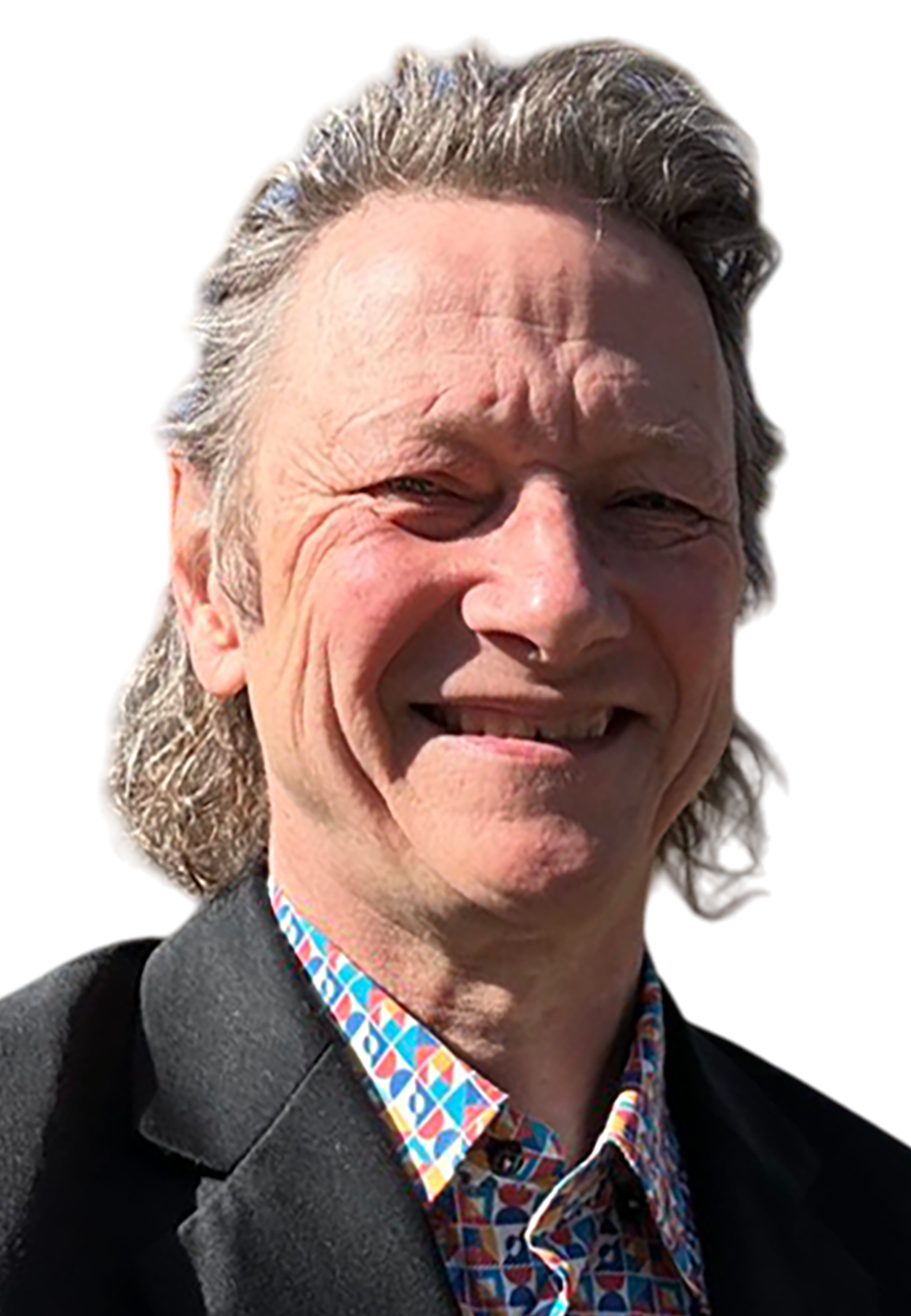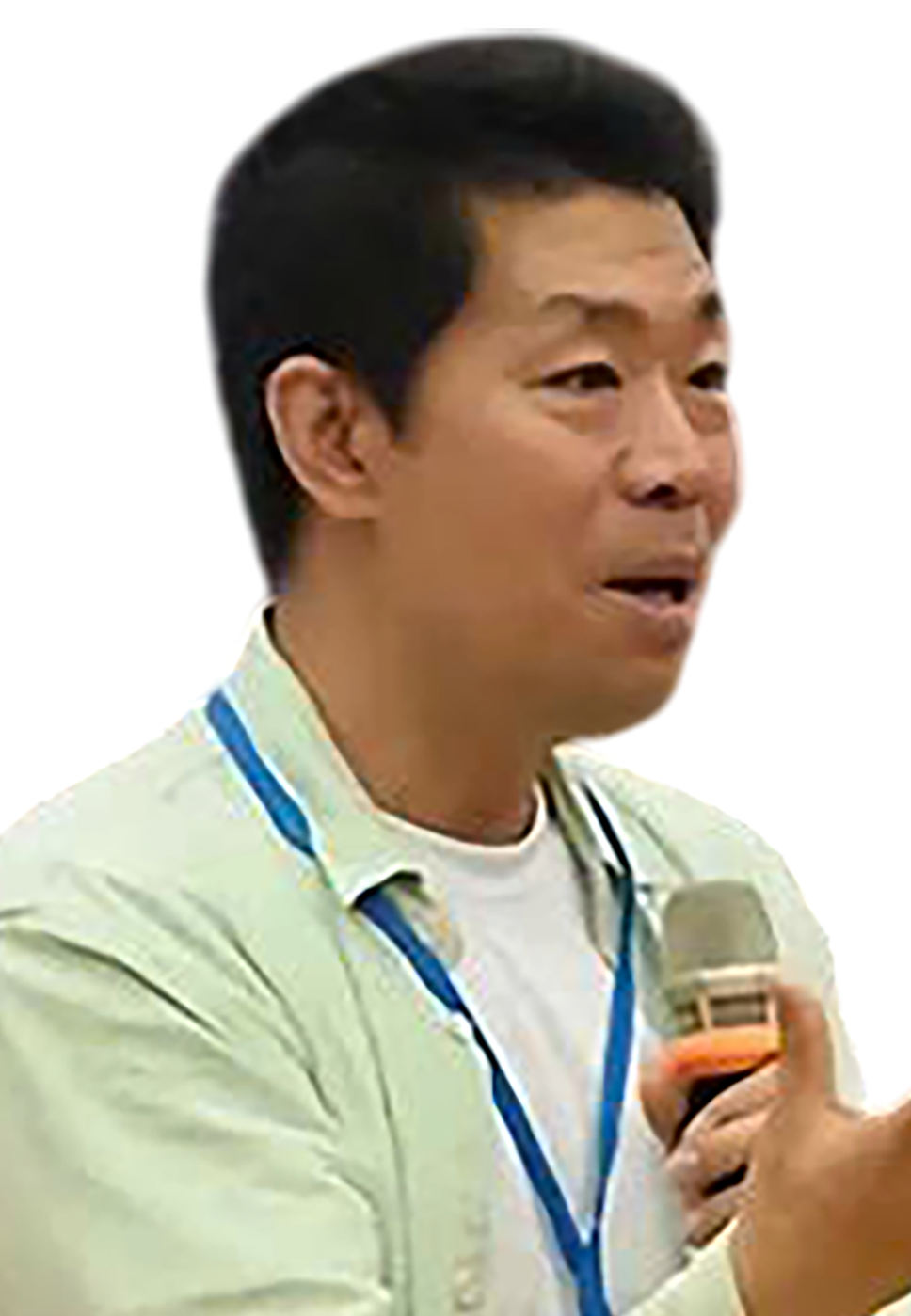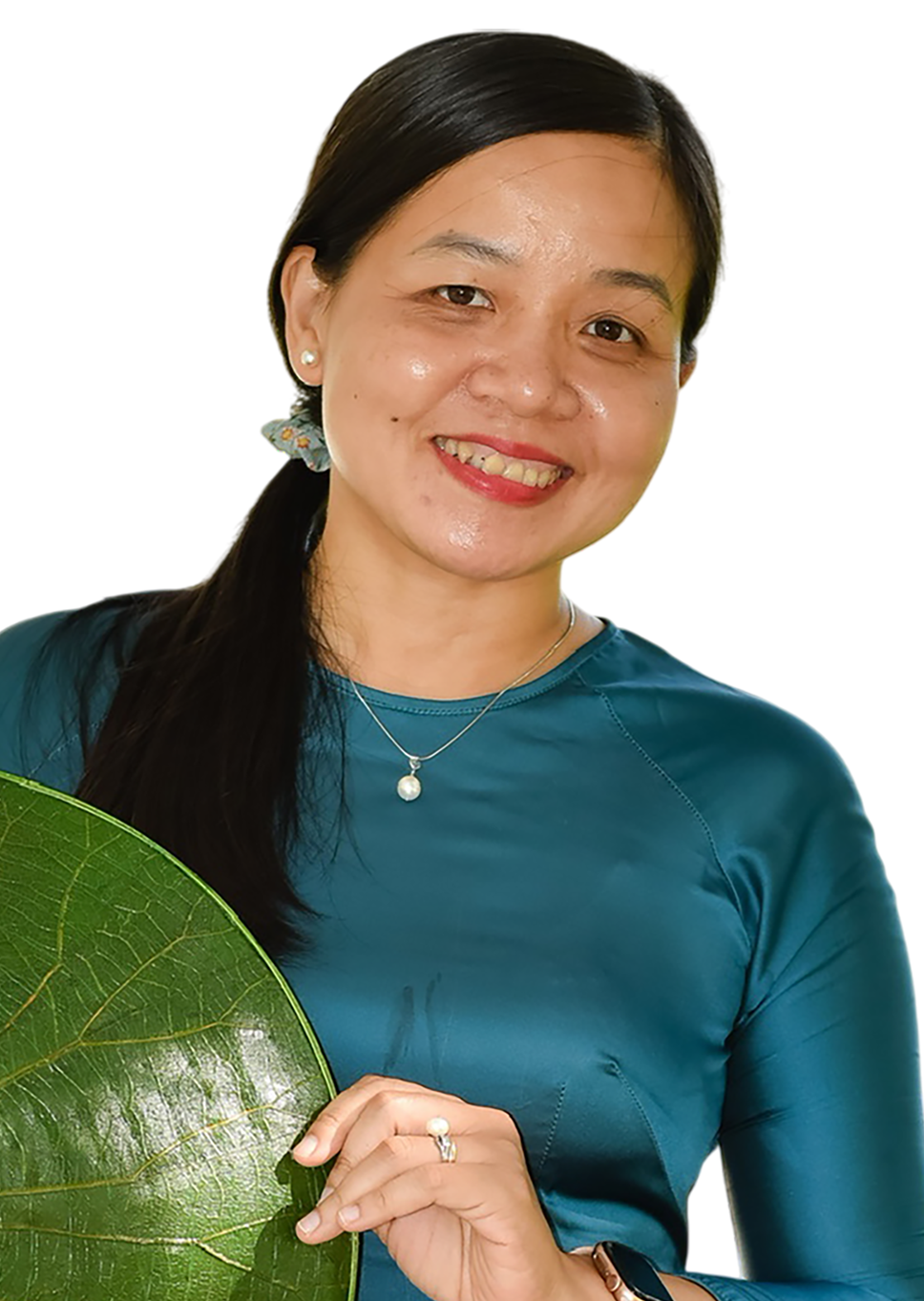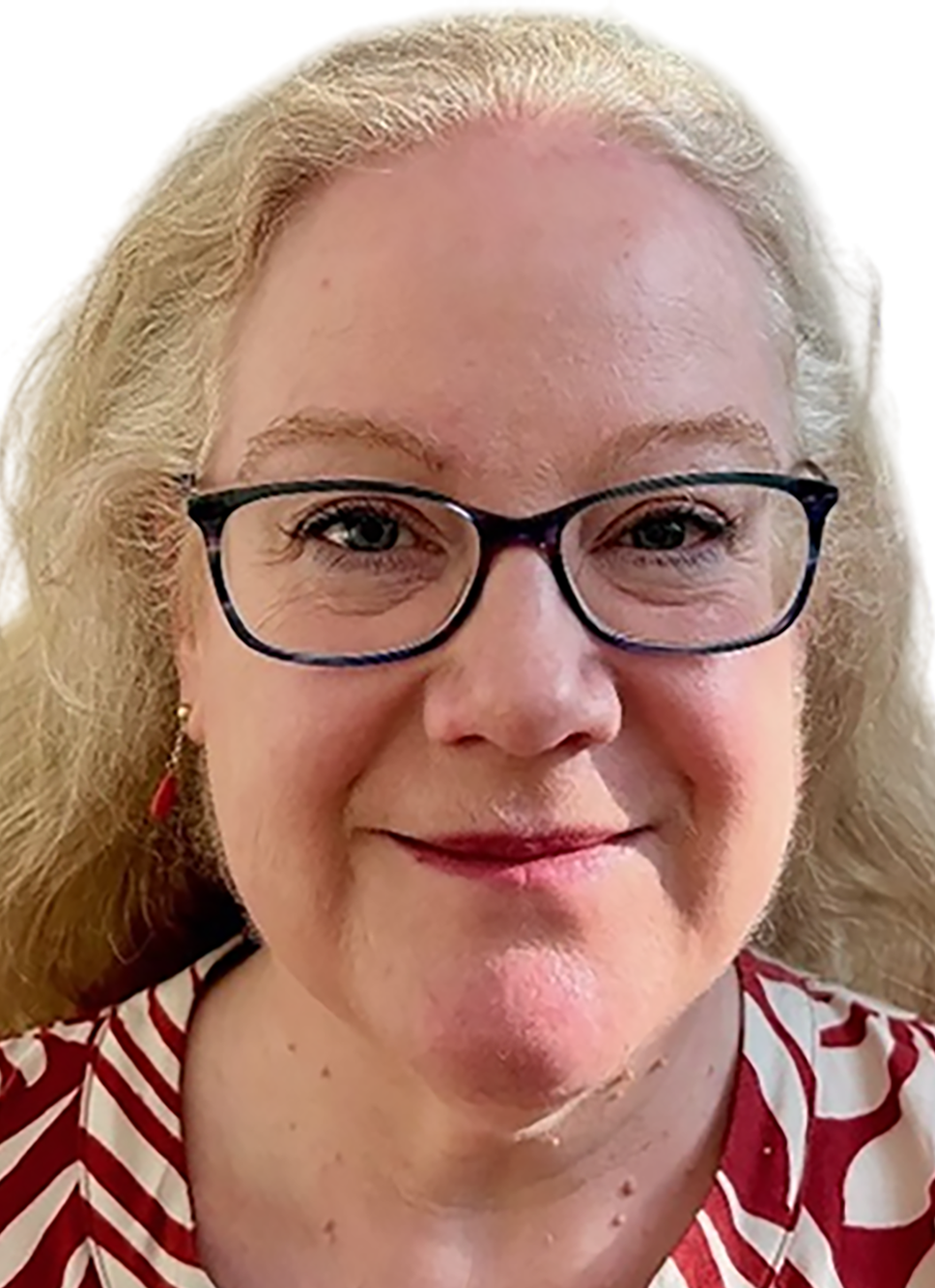VIC 2025 proudly introduces our four distinguished keynote speakers. These eminent experts will bring a wealth of knowledge and experience in English Language Teaching to the Convention, promising to inspire and enlighten our attendees.
Keynote Speaker 1: Professor Greg Kessler
 Greg Kessler has published extensively and delivered invited talks around the world. He is a professor of Innovative Learning Design & Technology in the Educational Studies department at Ohio University. His research addresses technology, teaching, learning, culture and language with an emphasis on teacher preparation and curricular design. He has held transformative leadership positions, including president of the computer assisted language instruction consortium (CALICO), president of the Ohio teachers of English to speakers of other languages (TESOL) and chair of the TESOL CALL interest section. He has edited numerous monographs, special issues and serial publications, including the TESOL Encyclopedia of English Language Teaching, the CALICO Equinox book series, Advances in CALL Practice & Research, and the Language Teaching & Technology forum in the journal Language Learning & Technology among others. He has most recently been Fulbright Canada Research Chair of Digital Technologies and Sustainability in the Werklund School of Education at the University of Calgary.
Greg Kessler has published extensively and delivered invited talks around the world. He is a professor of Innovative Learning Design & Technology in the Educational Studies department at Ohio University. His research addresses technology, teaching, learning, culture and language with an emphasis on teacher preparation and curricular design. He has held transformative leadership positions, including president of the computer assisted language instruction consortium (CALICO), president of the Ohio teachers of English to speakers of other languages (TESOL) and chair of the TESOL CALL interest section. He has edited numerous monographs, special issues and serial publications, including the TESOL Encyclopedia of English Language Teaching, the CALICO Equinox book series, Advances in CALL Practice & Research, and the Language Teaching & Technology forum in the journal Language Learning & Technology among others. He has most recently been Fulbright Canada Research Chair of Digital Technologies and Sustainability in the Werklund School of Education at the University of Calgary.
Ethical and Sustainable Innovation in Language Education
This keynote will address issues related to innovation and ethics in English language education. Innovation in language education often brings to mind concerns of inefficiency and digital waste, resulting from new approaches to preparation for technology use that is in a constant state of change as well as a constant demand for the newest available forms of technology. The decisions related to these innovative practices involve many ethical challenges. Often using the resources that are already available along with moderately adapted approaches to training can be much more effective than introducing wholly new approaches. By recognizing the valuable components already existing in your teaching ecosystem, you can dramatically improve the potential of innovative interventions while also increasing sustainability. These innovative practices may involve some emerging technologies such as artificial intelligence and virtual reality within established pedagogical practices that should be familiar to language teachers. The presenter will share his thoughts on these topics and provide examples.
Keynote Speaker 2: Associate Professor Barry Bai  Barry Bai is an associate professor at the Department of Curriculum and the director of Centre for Language Education and Multiliteracies Research at the Chinese University of Hong Kong. In 2023 and 2024, he was recognized as a top 2% most cited researcher in languages and linguistics worldwide by Stanford University. Additionally, he was named a Highly Ranked Scholar (Lifetime - top 0.05%, #20 and Prior 5 Years – top 0.05%, #3) in the specialty of primary school in 2024 by ScholarGPS. Currently, he serves as the president of Hong Kong Association for Applied Linguistics (HAAL) and is an associate editor of European Journal of Education and Asia Pacific Journal of Education. He is a recipient of 2014/2015 Faculty Exemplary Teaching Award and has secured highly competitive research funds, Hong Kong Research Grants Council (RGC) Competitive Research Funding Schemes (GRF/ECS) for 2018/2019 and 2022/2023. He has conducted multiple projects on English teachers’ continuing professional development funded by Quality Education Fund (QEF) and Standing Committee on Language Education and Research (SCOLAR) of the Hong Kong Education Bureau and the Chinese University of Hong Kong with a total funding amount of over HK$ 35 million. Professor Barry has provided training and professional development support to approximately 646 primary and secondary schools, 4,300 English teachers and 50,000 students (alongside 12,880 parents). Through his projects (e.g., GRF, QEF, and SCOLAR), the participants developed and adopted school-based teaching and learning materials. His work appears in leading education journals, including Computers & Education, Teaching and Teacher Education, Social Psychology of Education, Research Papers in Education, Cambridge Journal of Education, Journal of Multilingual and Multicultural Development, Studies in Educational Evaluation, Computer Assisted Language Learning, Language Teaching Research, Applied Linguistics Review, TESOL Quarterly and System.
Barry Bai is an associate professor at the Department of Curriculum and the director of Centre for Language Education and Multiliteracies Research at the Chinese University of Hong Kong. In 2023 and 2024, he was recognized as a top 2% most cited researcher in languages and linguistics worldwide by Stanford University. Additionally, he was named a Highly Ranked Scholar (Lifetime - top 0.05%, #20 and Prior 5 Years – top 0.05%, #3) in the specialty of primary school in 2024 by ScholarGPS. Currently, he serves as the president of Hong Kong Association for Applied Linguistics (HAAL) and is an associate editor of European Journal of Education and Asia Pacific Journal of Education. He is a recipient of 2014/2015 Faculty Exemplary Teaching Award and has secured highly competitive research funds, Hong Kong Research Grants Council (RGC) Competitive Research Funding Schemes (GRF/ECS) for 2018/2019 and 2022/2023. He has conducted multiple projects on English teachers’ continuing professional development funded by Quality Education Fund (QEF) and Standing Committee on Language Education and Research (SCOLAR) of the Hong Kong Education Bureau and the Chinese University of Hong Kong with a total funding amount of over HK$ 35 million. Professor Barry has provided training and professional development support to approximately 646 primary and secondary schools, 4,300 English teachers and 50,000 students (alongside 12,880 parents). Through his projects (e.g., GRF, QEF, and SCOLAR), the participants developed and adopted school-based teaching and learning materials. His work appears in leading education journals, including Computers & Education, Teaching and Teacher Education, Social Psychology of Education, Research Papers in Education, Cambridge Journal of Education, Journal of Multilingual and Multicultural Development, Studies in Educational Evaluation, Computer Assisted Language Learning, Language Teaching Research, Applied Linguistics Review, TESOL Quarterly and System.
Cultivating Self-Regulated Learners in English Language Education: Research Insights and Effective Practices
English learning presents unique challenges to Asian learners due to significant differences between their mother tongues and English. Additionally, ineffective teaching methods in the classroom and limited exposure to English outside of it also contribute to unsatisfactory learning outcomes. To address these issues, it is essential to explore the intricate relationships among various factors influencing self-regulated learning (SRL), particularly motivation and classroom environments. In this presentation, the author will first provide a brief overview of his research regarding key motivational factors (e.g., self-efficacy, interest and growth mindset), classroom environmental factors (e.g., teacher support and peer support) and self-regulated learning (e.g., goal-setting and planning, monitoring and self-evaluation) from a variable-centered approach. Following this, he shares insights from his most recent studies conducted using a person-centered approach, highlighting unique findings from both approaches. Most importantly, he will explore the application of his findings to classroom practices. He will also share practical methods to enhance different dimensions of English learners’ motivation, optimize the classroom environment, and improve their use of SRL strategies. Participants will have opportunities to consider how to conceptualize classroom-based research and also reflect on their teaching practices.
Keynote Speaker 3: Associate Professor Phuong Hoang Yen.
 Assoc. Prof. Phuong Hoang Yen is a lecturer and researcher in English Language Education at Can Tho University, Vietnam. She holds a PhD in Linguistics and an MA in Educational Studies from KU Leuven, Belgium, and a BA in English Language Teaching from Can Tho University. Her academic interests include language assessment, teacher professional development, learner autonomy, and context-responsive innovations in English language teaching. She has contributed to several publications and collaborative projects that explore the practical application of global ELT approaches in Vietnamese classrooms. Dr. Yen is committed to supporting teachers in navigating change and adopting reflective, evidence-informed approaches to teaching. Through her research and community engagement, she continues to explore how locally grounded practices can contribute to wider goals of sustainability and global readiness in English language education.
Assoc. Prof. Phuong Hoang Yen is a lecturer and researcher in English Language Education at Can Tho University, Vietnam. She holds a PhD in Linguistics and an MA in Educational Studies from KU Leuven, Belgium, and a BA in English Language Teaching from Can Tho University. Her academic interests include language assessment, teacher professional development, learner autonomy, and context-responsive innovations in English language teaching. She has contributed to several publications and collaborative projects that explore the practical application of global ELT approaches in Vietnamese classrooms. Dr. Yen is committed to supporting teachers in navigating change and adopting reflective, evidence-informed approaches to teaching. Through her research and community engagement, she continues to explore how locally grounded practices can contribute to wider goals of sustainability and global readiness in English language education.
From MOOCs to Classrooms: Building Teacher Capacity for Global-Ready English Education
This keynote presents findings from a year-long professional development initiative involving over 360 English teachers across the Mekong Delta, aimed at fostering sustainable and globally relevant innovations in English language teaching. Drawing on data from MOOCs, Communities of Practice (CoPs), and teacher reflections, the study examines how large-scale digital learning environments and peer-driven communities can enhance pedagogical transformation in under-resourced contexts. The project explored the integration of inclusive teaching, formative assessment, digital literacy, and communicative language approaches into local classrooms. Teachers adopted strategies such as project-based learning, differentiated instruction, and multimodal assessment, with evidence of increased learner engagement and autonomy. Reflective practices and peer mentoring within CoPs further supported professional growth and knowledge transfer. The findings suggest that when supported by accessible digital tools, localized professional development anchored in collaborative learning can build both teacher agency and instructional sustainability. This study contributes to the discourse on teacher education in the Global South, highlighting scalable pathways for enhancing ELT quality, particularly in rural and semi-urban contexts. It argues for a model of continuous, context-sensitive teacher learning that aligns with global readiness while responding to local educational realities.
Keynote Speaker 4: Eilidh Hamilton
 Eilidh Hamilton is the British Council’s East Asia Regional Business Director for Cultural Engagement – leading the work in East Asia across Arts, Education and English and School Education. She is from Scotland and has worked for the British Council for over 20 years in the Middle East, Europe, the Caucasus and Central Asia. She has been based in Singapore since July 2023. Eilidh first taught English in Poland on a voluntary basis age 18, and then qualified as an English language teacher in 1997 which took her to Egypt, Syria and Oman before joining the British Council teaching centre in Bahrain in 2004. She is an experienced teacher and teacher educator and has worked directly with teachers from Ministries of Education in over 25 countries. She has a great love for all things related to teaching and learning and finds any excuse to get back in a classroom.
Eilidh Hamilton is the British Council’s East Asia Regional Business Director for Cultural Engagement – leading the work in East Asia across Arts, Education and English and School Education. She is from Scotland and has worked for the British Council for over 20 years in the Middle East, Europe, the Caucasus and Central Asia. She has been based in Singapore since July 2023. Eilidh first taught English in Poland on a voluntary basis age 18, and then qualified as an English language teacher in 1997 which took her to Egypt, Syria and Oman before joining the British Council teaching centre in Bahrain in 2004. She is an experienced teacher and teacher educator and has worked directly with teachers from Ministries of Education in over 25 countries. She has a great love for all things related to teaching and learning and finds any excuse to get back in a classroom.
Evolving Trends in English Language Teaching and Professional Teacher Competencies
Using the results of a recent review commissioned by the British Council into the changes seen in English language teaching and teacher education over the last 10 years, this presentation highlights some of the key developments and trends during that period and implications drawn from these to inform future practice. The findings have now been used to support the reshaping of the descriptions of teacher competencies and the Professional Practices outlined in the British Council’s Continuous Professional Development (CPD) Framework for teachers. The presentation will cover the purposes for the review, the methodology used, and the key findings from the global survey. It then shows how these findings were used to review and revise the current CPD Framework and the rationale for the changes. It concludes with practical scenarios and suggestions as to how the revised CPD Framework might be used by ELT practitioners, both teachers and teacher educators.
